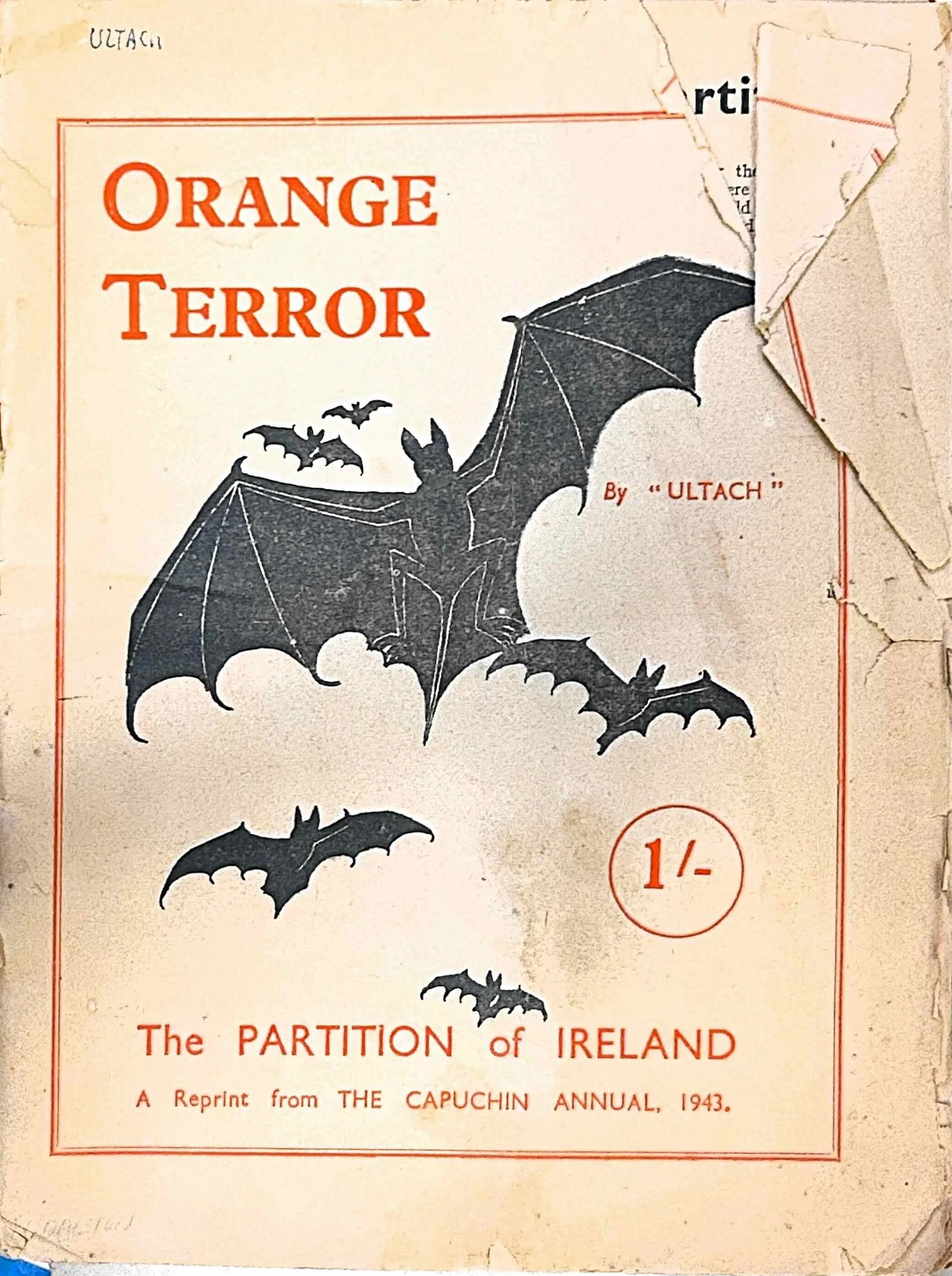Archives Highlights: Orange Terror
As we continue in our archival work, we are uncovering materials from many different periods of Irish history. Some of these may be misleading to those without a background in Irish history, such as this pamphlet featuring flying bats and a stark title of “Orange Terror.” However, those familiar will correctly associate this title with the Orange Order, the Fraternal Protestant Organization in the North of Ireland (aka. the Loyalist Orange Institution).
The Orange Order was founded on 21 September in 1795, and functions primarily in Ulster. They represent the British idealist view of the North and frequently clash with Irish Nationalist views, especially during The Troubles. Thus, arguments against the presence of the Orange Order (or Orangemen) such as this pamphlet are commonly found in the North, where the largest focus of British rule exists in Ireland.
Orangemen are commonly associated with The Partition, a process wherein Ireland was divided into the North (British rule) and the South (Irish rule). Enacted in 1921, this divide has become fundamental to Irish history, criticized widely by Irish nationals and those in the diaspora. Many works have been published to express their disdain for this ruling.
AIHS Copy of Orange Terror: The Partition of Ireland
This pamphlet (Full title: Orange Terror, The Partition of Ireland) was published in 1943 by J.J. Campbell (under the pseudonym “Ultach” or Ulsterman). James Joseph Campbell lived from 1910 to 1979 and was a scholar, author, and broadcaster in the North of Ireland. He was born in Belfast and raised Catholic, attending St. Malachy’s college. After graduating with honours from Queens University Belfast (reading classics) in 1930, he continued on to an MA.
His work was primarily in the field of education, but he quickly grew passionate on other parts of daily life, particularly concerned with the inclusion of Catholics within the public sphere. As a broadcaster, he spoke on a number of issues, especially those concerned with supporting Northern Irish children and their welfare.
This pamphlet was first published in Capuchin Annual in 1943, after which it was reprinted for public awareness, including this copy in our archives. Within the pamphlet, Campbell moved away from his formal bureaucracy and openly criticized the Protestant hegemony in the North, as well as the anti-Catholic violence it resulted in.
Some decades later in 1969, Campbell worked to investigate the disturbances in the North. This investigation resulted in personal threats to Campbell’s home and family, from both loyalists and republicans. He left his home to escape these threats and settled down, dying in Belfast on 18 September 1979.
The pamphlet begins simply, with the words “I live there,” Campbell’s argument for why his position should be taken seriously. His narrative is both personal and academic, citing his emotions on the discrimination he has faced while simultaneously listing statistics and outside sources to show why this rhetoric is well-studied. This piece, kept securely in our archives, is one example of the many arguments based on personal experiences with Irish culture. Many of those who settled in America and became part of our organization collected these materials to be brought over and saved for their historical value. Campbell’s argument is not unique in our current day, yet it shows his personal values as an educator, a speaker, and—most importantly—an Irishman.
Citations: Rouse, John. “Campbell, James Joseph.” Dictionary of Irish Biography, Oct. 2009, www.dib.ie/biography/campbell-james-joseph-a1423.

